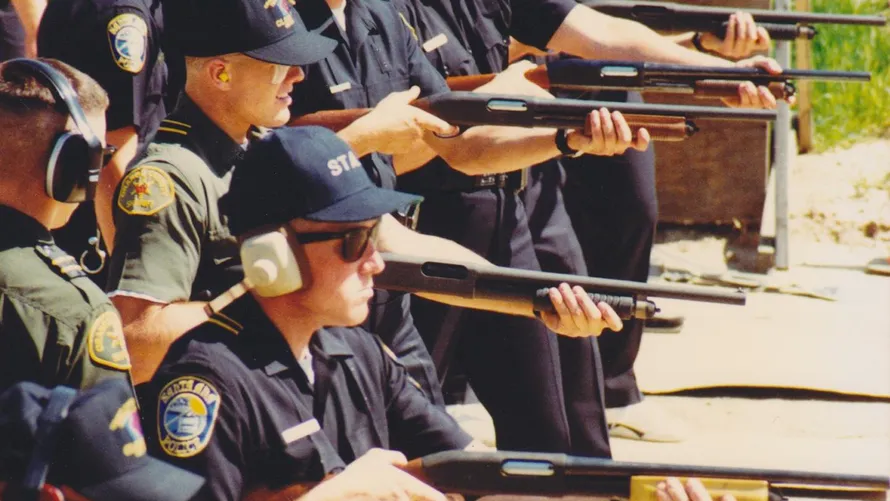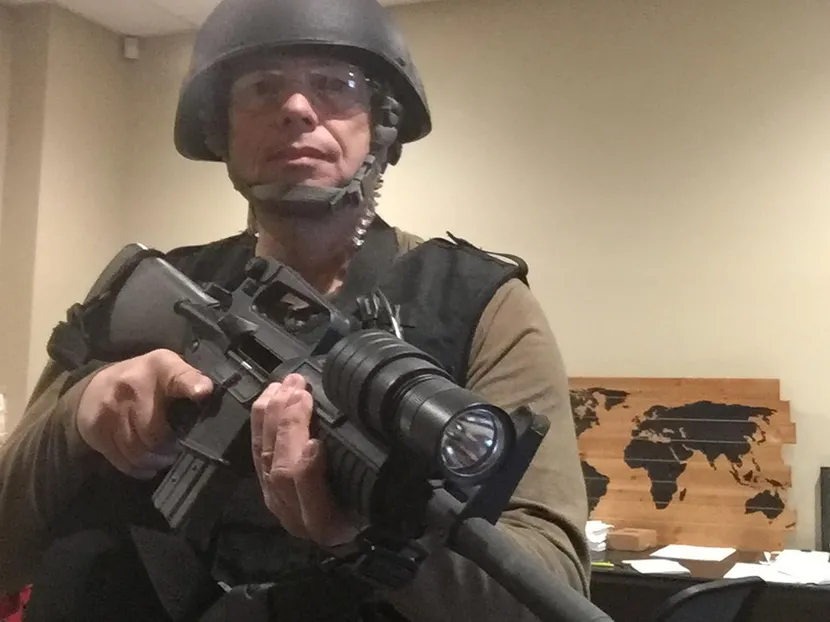March 19 | 2022

Jim WagnerAs a martial artist, you should never have any object in your primary hand while standing or walking in a potentially hostile environment. What is your primary hand? Allow me to explain.
Your primary hand, also referred to as your “weapon hand” by professionals (law enforcement, military, corrections, security, etc.) is determined by your handedness, which means the tendency to use one hand more naturally than the other. If you’re right-handed, that is your primary hand. If you’re left-handed (8 percent to 10 percent of the population), your left is your primary hand. Approximately 1 percent of the population is ambidextrous, meaning they feel equally comfortable using that weapon in either hand.
Unfortunately, some self-defense instructors refer to the primary hand as the “strong hand,” but I don’t. Words are powerful, and if you think of your dominant hand as “strong,” it follows that your other hand is “weak.” I don’t have a weak hand — just as I don’t have a “strong weapon” and a “weak weapon” when serving on my armed security team.
My rifle is more powerful than my pistol, so the rifle is deployed if I need to hit an attacker from a greater distance than the pistol was designed for or if I need more stopping power for a certain tactical situation. However, if I had to search a small room inside a building, I’d rather rely on my pistol because it’s easier to use in confined spaces. Granted, the pistol has less stopping power than the rifle, but it’s just as lethal. Likewise, my primary hand has one purpose, and my secondary hand has another.

Jim Wagner
Your primary hand must always remain free to deploy your weapon for self-defense. In an executive-protection situation — in other words, while serving as a bodyguard — the primary hand is also kept free so you can grab, push or direct the person you’re protecting. Of course, depending on your “reality,” a weapon can mean a manufactured weapon such as a gun or knife, or an improvised weapon such as a tactical pen, tactical flashlight or any common object allowed by law.
When I was a recruit at the police academy, the tactical officers, who are equivalent to drill sergeants in the military, warned me and my classmates never to have anything in our primary hand except a weapon, be it a baton, pistol or long gun. Having anything else in that hand while standing or walking on the academy grounds was forbidden.
To make sure we never forgot this cardinal rule, the tactical officers would first scream at the violator. “What is in your weapon hand?” they would shout. “Is that a notebook in your hand?” They could spot a violator from clear across the campus!
Second, they would administer punishment. It was usually in the form of push-ups, followed by an order to complete a formal report that was due the next morning. In the two-page report, the recruit had to explain his or her failure to follow directions and how that would be remedied. Of course, it had to be handwritten in a specific format with zero mistakes.
Obviously, in the classroom, we were allowed to have a pen in our primary hand — or a field dressing if we were doing first aid training. The rule pertaining to having the primary hand free applied only to tactical situations. Like everything, this rule needs to be kept in the proper context.
The purpose of the harassment was to ensure that we recruits never had anything in our primary hand while in the field and that we left it free do a quick draw of the pistol or to deploy the long gun during an ambush. When you’re a cop on the street or a soldier on the battlefield, every moment counts for survival.
It did not take too many weeks at the police academy for me, like one of Pavlov’s dogs, to experience instant fear the moment I caught myself with something other than a weapon in my primary hand. So relentless was the enforcement of this survival rule that to this day, three decades after graduating, I don’t feel comfortable with anything in my right hand (for I am right-handed) except a weapon when I’m in public.
Your assignment: Starting today, strive to keep your weapon hand free when you’re in public and especially when you’re in a potentially hostile environment — whether you’re standing or walking. Even if you don’t have a firearm on you like a law-enforcement officer or soldier would, you should have some sort of weapon within reach of your primary hand. You must be able to get to it without delay.
It’s essential to always think tactically, especially with violence increasing worldwide.
BE A HARD TARGET
